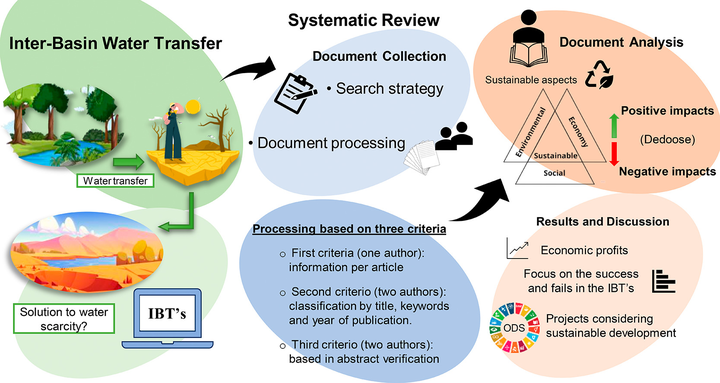Sustainability of water transfer projects: A systematic review

Abstract
Inter-basin water transfer projects (IBTs) have significantly increased in number in recent decades due to the unremitting need to solve the problem of global water imbalance. However, given the complex challenges inherent in implementing and maintaining IBTs, there is a need to characterize the multi-faceted aspects of sustainability (or unsustainability) that result from these megaprojects. Through a systematic review of the literature, we sought to identify and characterize the positive and negative impacts that most often influence the sustainability of IBTs, focusing on impacts within the environmental, social, and economic pillars of sustainability. Based on an eligibility criterion, the systematic review selected 68 documents out of an initial total of 1567 for information quality analysis and content evaluation. The qualitative coding of the documents allowed us to characterize the landscape of impacts that result from IBTs across the three pillars of sustainability. The study findings revealed that the most frequently coded positive impacts related to the environmental pillar of sustainability, while the most frequently coded negative impacts related to both social and environmental pillars. In addition, the most frequently coded positive impact overall related to the economic benefits generated by the IBTs. Through a critical analysis of the study findings, we provide an assessment of future IBTs with a focus on the UN sustainable development goals.